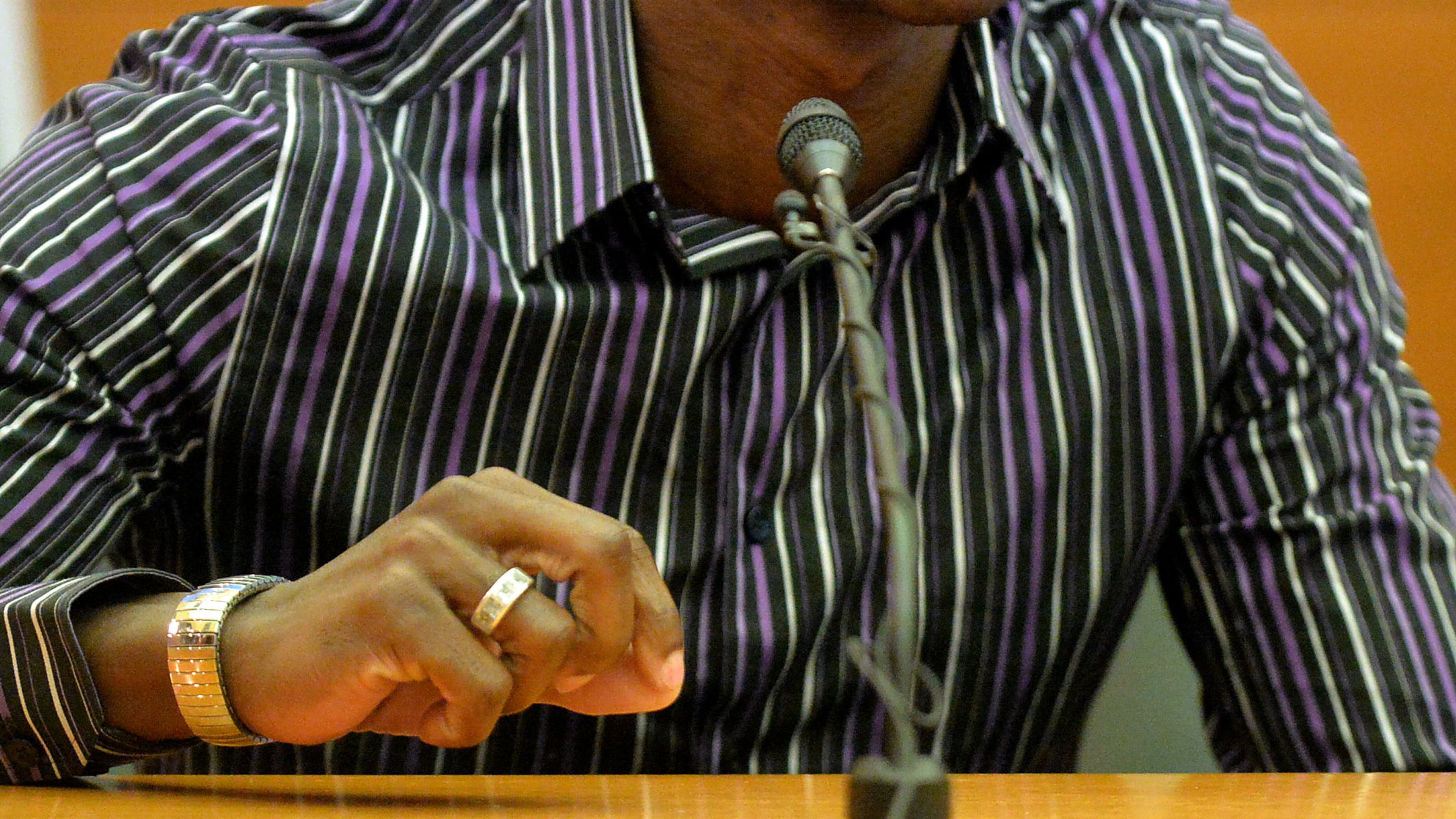APS trial: Ex-principal says pressure led her to cheat

Former Venetian Hills Elementary School principal Clarietta Davis on Wednesday testified she changed her students’ answers from wrong to right out of fear she and her teachers would lose their jobs if the school did not make targets set by the district.
“I regret it because I did have some smart children,” Davis testified. “When you’re faced with just the idea of not making those targets and your job is in jeopardy and the jobs of your teachers, it’s a hard decision.”
It was also the wrong decision, too, Davis told jurors.
Davis, who is serving a two-year sentence on probation, previously pleaded guilty to a felony — falsely certifying her school’s Criterion-Referenced Competency Test when she knew cheating had occurred. She was the fifth of the 21 defendants who have pleaded guilty to testify for the prosecution in the Atlanta Public Schools test-cheating trial.
Davis said her boss, former regional supervisor Sharon Davis-Williams, knew Venetian Hills students came from a highly transient population and that most were performing below grade level. Yet Davis-Williams, one of 12 defendants on trial, did not let those issues be used as excuses, Davis said.
“What was I going to do about it?” Davis recalled her boss telling her during one meeting. ” … A time or two it was mentioned I may have the wrong people on the bus.”
11:50 a.m.
A former Atlanta Public Schools technology specialist on Wednesday held firm about his observations of test-cheating and his boss’s attempts to cover it up, while defense attorneys sought to undermine his testimony.
Jackie Boyce McIntyre testified that when he served as a testing monitor at Perkerson Elementary School in 2009 he saw a teacher repeatedly point out answers on standardized tests to students. McIntyre said he made note of his observations on standard feedback forms and gave them to former APS regional supervisor Sharon Davis-Williams, one of 12 defendants on trial.
But Davis-Williams gave him new forms to fill out and told him not to make note of teachers pointing to answers, because such forms were subject to public access under the Georgia Open Records Act, McIntyre testified.
Defense attorney Teresa Mann, who represents Davis-Williams, strongly attacked McIntyre’s credibility. Mann noted several inconsistencies in statements McIntyre made on the witness stand as opposed to what he told Bob Wilson, one of the governor’s special investigators, during a Sept. 1, 2010, interview.
She noted that when Wilson interviewed him, McIntyre said he held a doctorate, when in fact he is still working to get one.
“When you told Mr. Wilson you were a Ph.D. that was a lie, wasn’t it?” defense attorney Akil Secret asked during his cross-examination.
“Correct,” McIntyre answered matter-of-factly.
George Lawson, who represents former regional supervisor Michael Pitts, tried to introduce into evidence a document in which he said McIntyre admitted lying to Cobb County police during a 2007 domestic incident.
“This is about a witness who lies any time he’s involved in an inquiry,” Lawson said.
But Fulton County Superior Court Jerry Baxter sustained a prosecution objection and disallowed the issue to be put before the jury.
6:30 a.m.
A former technology specialist who said he was rebuked after reporting suspicions about test-cheating returns to the witness stand Wednesday in the Atlanta Public Schools trial.
Jackie Boyce McIntyre testified Tuesday as a witness for the prosecution’s case against former APS regional supervisor Sharon Davis-Williams, one of 12 defendants on trial for an alleged racketeering conspiracy.
In May 2009, McIntyre went to Herndon Elementary School and was in a classroom when the teacher had to walk out for a brief period. McIntyre said he then struck up a conversation with the students, asking them how they had performed on the recent state standardized tests.
“A couple of students yelled out that the teacher had given them answers on the exam,” McIntyre testified.
But other students said the teacher had only given them answers to sample test questions, McIntyre said. This prompted him to tell the two students to be careful what they said about their teacher because if they said something wrong it could get her in unnecessary trouble, he said.
When the teacher returned, McIntyre told her what the students had said and the teacher then became belligerent and screamed at him, he testified. McIntyre said he then reported what happened to Herndon’s principal.
He said he was soon summoned to the school by Davis-Williams for an early morning meeting. “She pretty much told me that I was … not to engage in idle chit-chat with the students and that I showed irrational behavior,” McIntyre testified.
Davis-Williams gave McIntyre five minutes to write on a piece of paper what had happened and refused to give him more time when he asked for it, he testified.
“I felt like I had done something wrong,” he said. ” … I was pretty much scolded.”
Davis-Williams said she would follow up McIntyre’s report with an investigation, although no one from the district’s Office of Internal Resolution contacted him about him about it, he testified.
When Fulton County prosecutor Fani Willis produced a memo Davis-Williams sent to McIntyre a few days later, McIntyre became emotional.
“She hurt my integrity with this,” he testified, his voice quavering. “I strive for the best.”
McIntyre’s complaint was “unfounded,” Davis-Williams wrote. “Your judgment was flawed. … I hold you accountable for not having a similar situation occur in the future.”
McIntyre testified that there were “lies in there,” referring to Davis-Williams’ memo.
Two years later, amid a state investigation into the cheating scandal, McIntyre contacted special investigator Bob Wilson and told him what happened.
McIntyre testified when he worked for Davis-Williams for several years, he had a good relationship with the former School Reform Team executive director. But that relationship turned sour when he contacted the special investigators, he testified.



